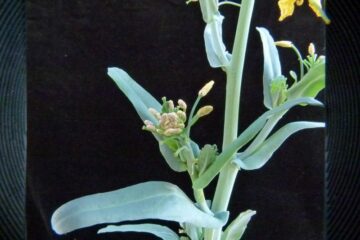Hormone study gives scientists a sense of how animals bond

Researchers at the University of Edinburgh have shown that the hormone vasopressin helps the brain differentiate between familiar and new scents.
The study, published in the journal Nature, suggests that when the hormone fails to function, animals are unable to recognise other individuals from their scent.
The ability to recognise others by smell is crucial in helping animals to establish strong bonds with other animals.
The research, funded by the Biotechnology and Biological Sciences Research Council (BBSRC), may offer clues about the way people make emotional connections with others through smell and deepen our understanding of the role scent plays in memory.
Many scientists think a failure in this recognition system in humans may prevent them from forming deep emotional bonds with others.
It is thought that it may be at the root of conditions such as some forms of autism and social phobia.
Researchers, including scientists in Germany and Japan, reached their conclusion by studying the way rats familiarise themselves with other rats through smell.
They placed an adult rat in an enclosure with a baby rat and left them to sniff and interact with each other.
After a short separation, they placed the baby back in the adult's enclosure, together with an unknown baby.
Adult rats whose vasopressin had been blocked failed to recognise the baby they had already met.
Professor Mike Ludwig, who led the study at the University of Edinburgh, said: “This study gives us a window into understanding the biological basis of social interactions.
It may be that vasopressin helps to filter sensory information according to its emotional significance.”
Professor Janet Allen, BBSRC Director of Research said, “Research that helps us to gain a fundamental understanding of how our brains work is vital if we are to know what is happening when something has gone wrong. The biological basis of psychological responses can often be extremely complicated, so finding this direct relationship between a hormone and a psycho-social phenomenon could open up a whole wealth of knowledge in this area.”
Media Contact
More Information:
http://www.ed.ac.ukAll latest news from the category: Life Sciences and Chemistry
Articles and reports from the Life Sciences and chemistry area deal with applied and basic research into modern biology, chemistry and human medicine.
Valuable information can be found on a range of life sciences fields including bacteriology, biochemistry, bionics, bioinformatics, biophysics, biotechnology, genetics, geobotany, human biology, marine biology, microbiology, molecular biology, cellular biology, zoology, bioinorganic chemistry, microchemistry and environmental chemistry.
Newest articles

Boron deficiency: oilseed rape reacts as with infection and pest infestation
Genetic mechanisms uncovered… Boron deficiency has a devastating effect on oilseed rape and related plants. However, little is known about the underlying genetic mechanisms. A study shows that the response…

Quantum Precision: A New Kind of Resistor
Researchers at the University of Würzburg have developed a method that can improve the performance of quantum resistance standards. It´s based on a quantum phenomenon called Quantum Anomalous Hall effect….

Security vulnerability in browser interface
… allows computer access via graphics card. Researchers at Graz University of Technology were successful with three different side-channel attacks on graphics cards via the WebGPU browser interface. The attacks…





















